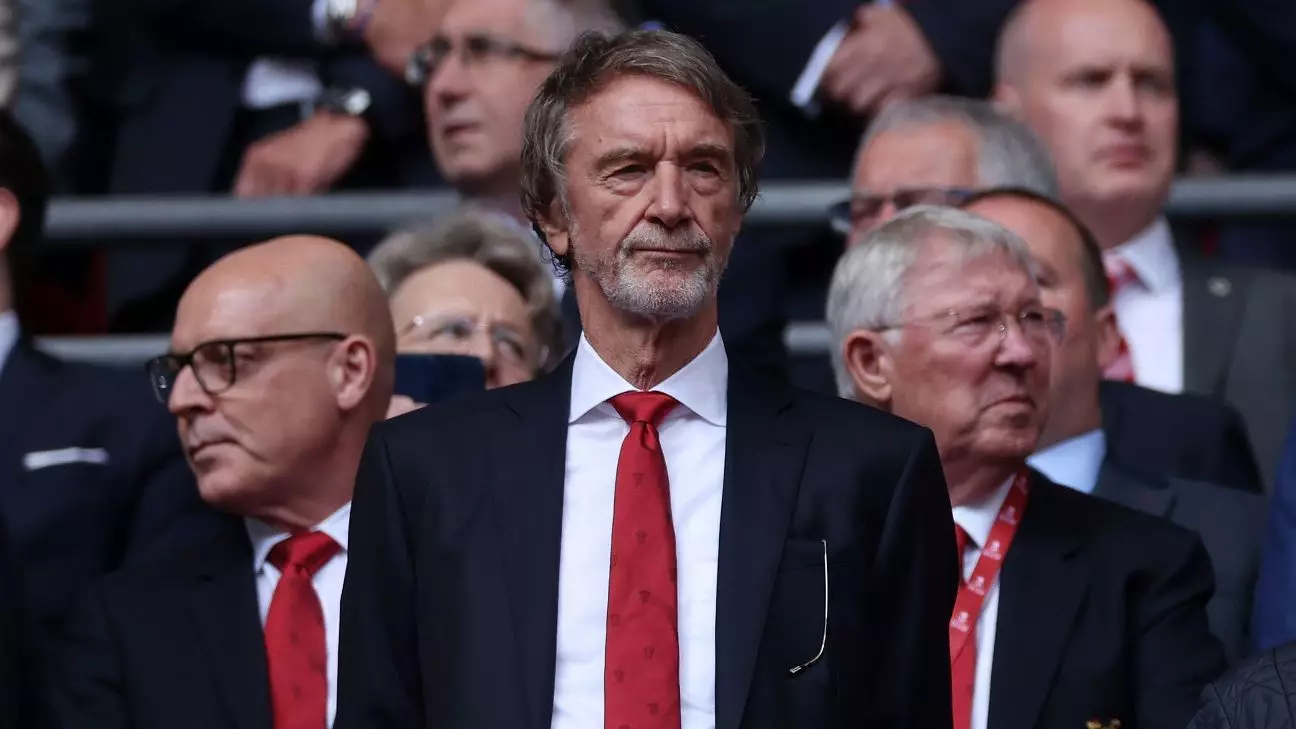As the world of football continues to evolve, the issue of multi-club ownership has become a topic of debate and contention. Manchester United co-owner Sir Jim Ratcliffe recently shed light on the challenges faced by clubs with multiple owners, particularly in relation to UEFA’s rules on the matter. These rules, which state that no individual or legal entity may have control or influence over more than one club participating in a UEFA club competition, have created hurdles for clubs like United and Ligue 1 side Nice. Despite the potential benefits of synergy between clubs owned by the same entity, the regulations have restricted the transfer of players between the two clubs.
Ratcliffe’s company, INEOS, acquired Nice in 2019 before securing a minority stake in Manchester United. However, the qualification of both clubs for next season’s UEFA Europa League has complicated matters. While the rules do not outright forbid transfers between clubs with shared ownership, the issue of control and influence looms large. Ratcliffe expressed frustration at the limitations imposed by UEFA, noting that it is not fair to the players involved. The inability to conduct business freely between clubs owned by the same entity raises questions about the autonomy and competitiveness of each club.
Despite these challenges, Ratcliffe remains focused on fostering the right environment at Manchester United to drive success on the field. He emphasized the importance of creating a supportive yet competitive atmosphere for the players, acknowledging the historical lack of such an environment at the club. While the managerial position at United has been a topic of speculation, Ratcliffe stressed that the coach is not the central issue. Instead, he believes that cultivating a positive culture and atmosphere within the club is essential for achieving success in both domestic and European competitions.
In addition to multi-club ownership restrictions, the landscape of European football is also shaped by financial regulations and controls. The Premier League’s Associated Party Transaction (APT) rules have come under scrutiny, with Manchester City taking legal action against the league over the tightened regulations. Ratcliffe expressed support for City’s stance, highlighting the importance of a free and open market in football. However, the Labour Party’s proposal to introduce a football regulator in the UK, aimed at curbing excessive spending and protecting fan interests, has faced criticism from Ratcliffe. He raised concerns about the potential limitations and inhibitions that regulatory measures could impose on top clubs in the Premiership.
The challenges posed by multi-club ownership, UEFA regulations, and financial controls in European football underscore the complexities of modern football governance. While the pursuit of fairness and accountability is essential, striking a balance between regulation and commercial freedom remains a delicate and contentious issue. As clubs navigate these challenges, the need for transparency, integrity, and collaboration between stakeholders is paramount in ensuring the long-term sustainability and competitiveness of the sport.

